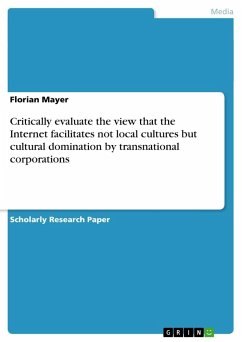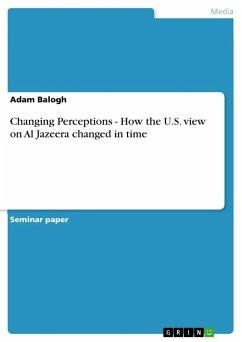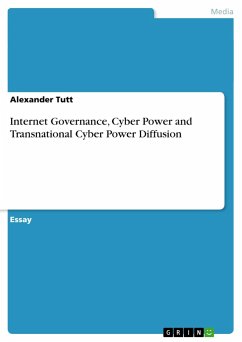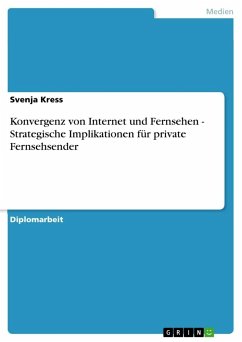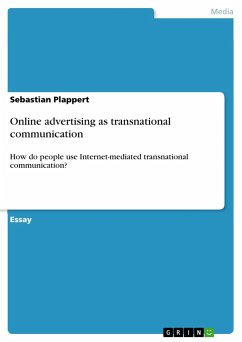Research Paper (undergraduate) from the year 2003 in the subject Communications - Media and Politics, Politic Communications, grade: 84, University of Leeds (Communication and Cultural Studies), course: Advanced Cultural Production and Policy, language: English, abstract: The early internet, whose invention some authors compare to the revolution the exploitation of the power of steam brought about, was developed in the US in an university and military context and mainly financed by ARPA, the US Department of Defence Research Agency. In the 1970s in the US thought was given to the need to back up computing systems in case of nuclear attack which resulted in yoking the machines together, which then formed part of what we today call the internet. Its development from there has been viewed as being in the hands of its users. The fundamental principles of the internet were 'free circulation of information, belief in the productiveness of confrontation and interaction, autonomy, and individual responsibility'. What is more, because the academic and countercultural computing cultures were made up of intellectuals, these cultures were able to produce accounts of themselves with some advocates highlighting the capacity of the internet to (re)establish community and foster local cultures.In the following pages we will be looking at how the internet has altered existing social relations of production and consumption. It is being examined in how far the internet offers the opportunity 'to challenge the authority of the producer, democratise production capability, and empower consumers' and in how far it remains a public space free of interference, both from government control and commercialism.

